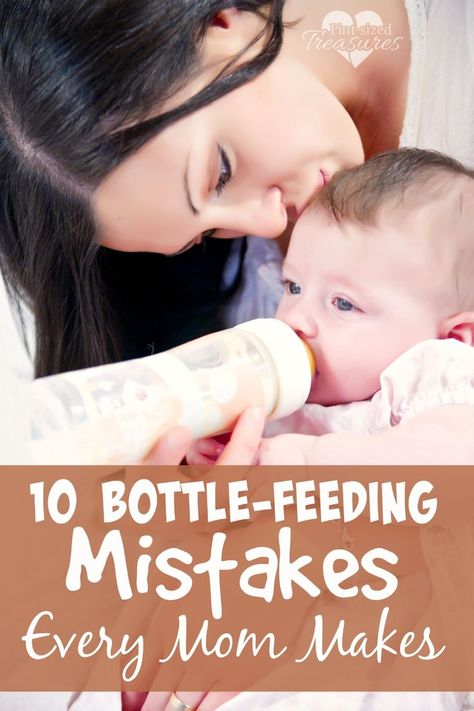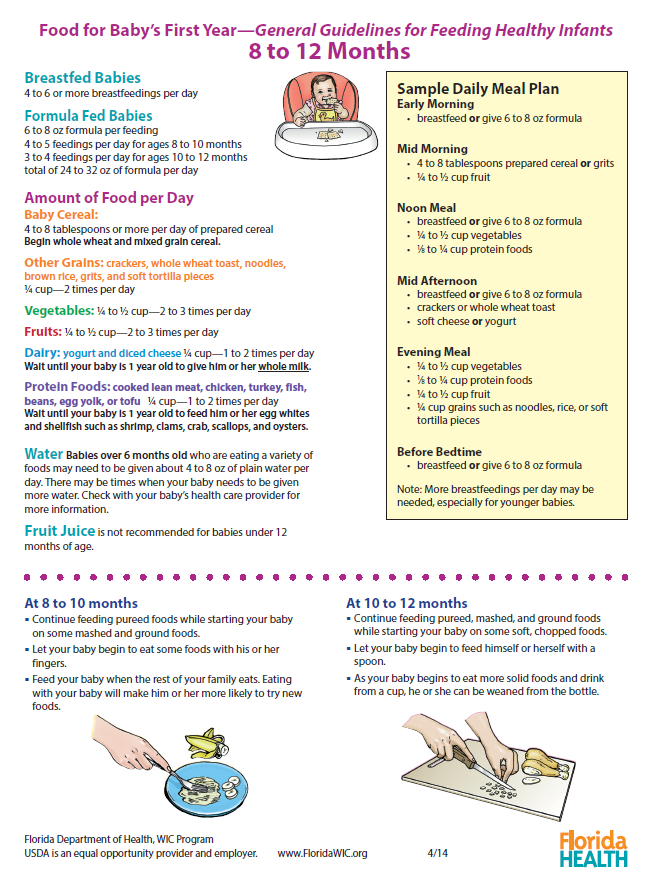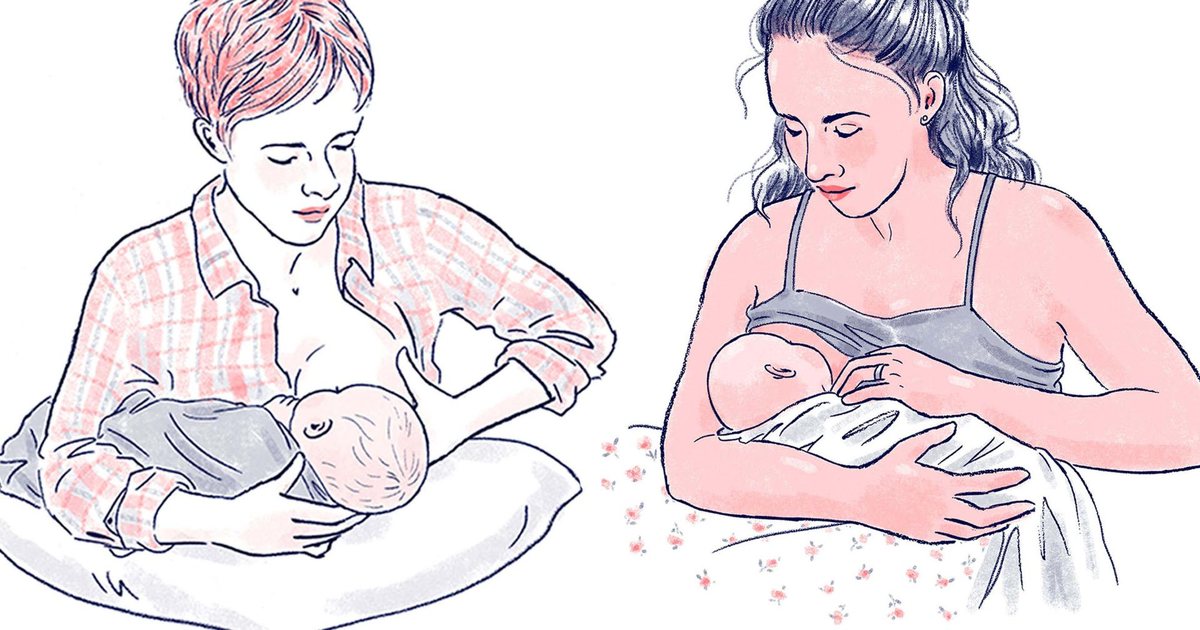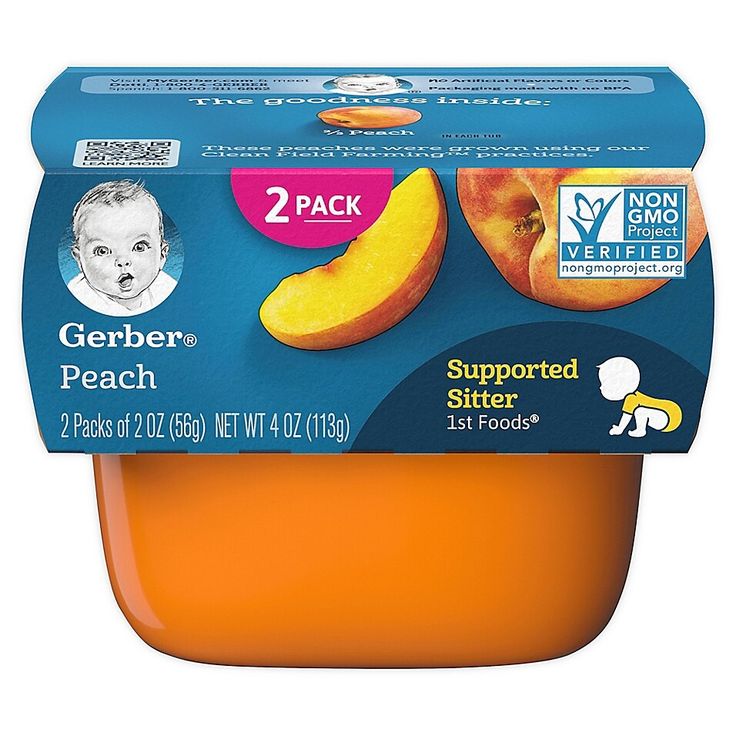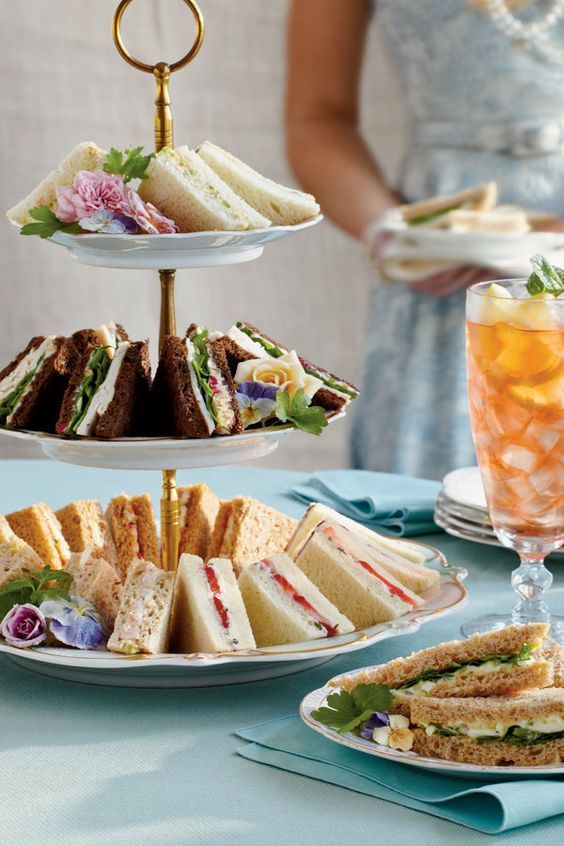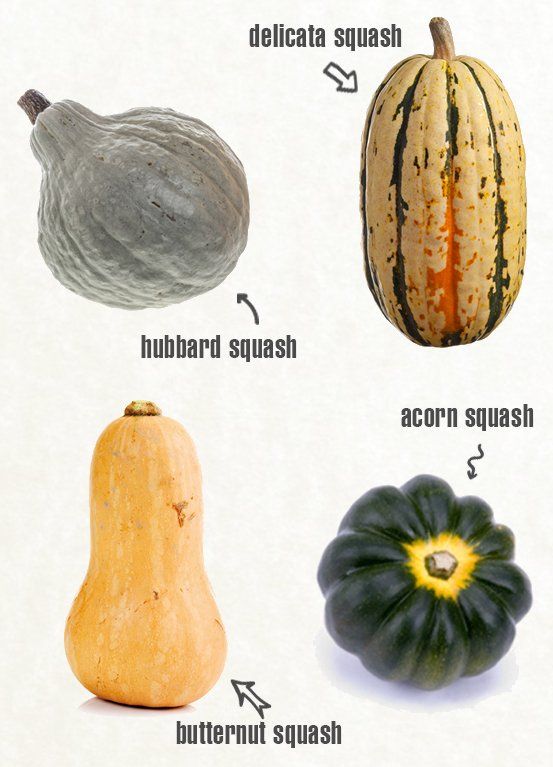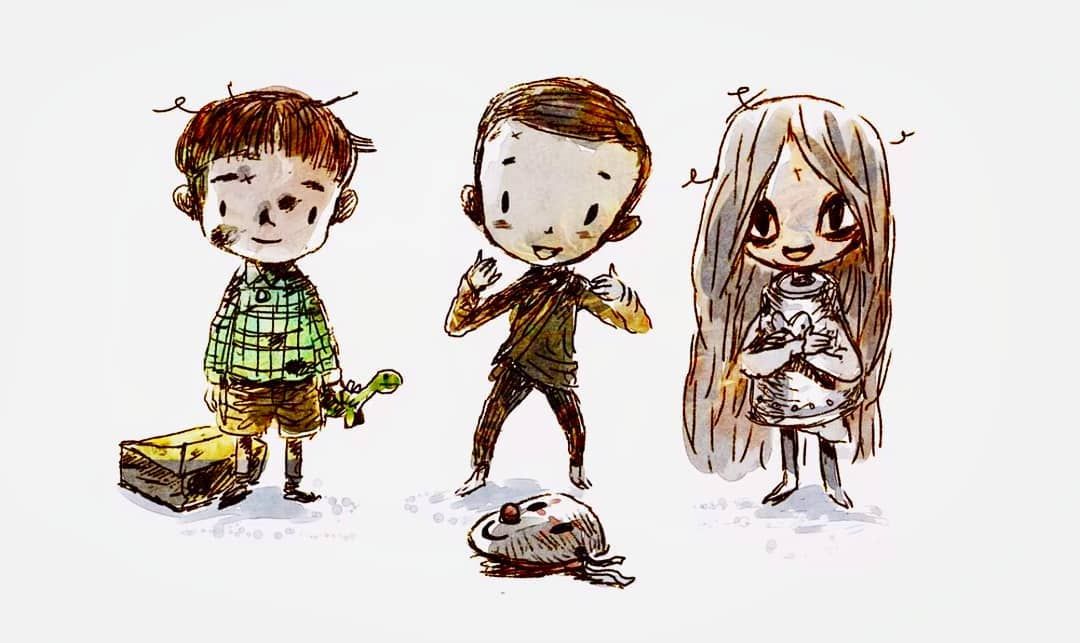Baby crying when feeding formula
12 potential formula feeding problems and how to solve them
Being able to formula feed is a life-saver for many parents and their babies, but it isn't free of difficulty. Some of the most common formula-feeding problems include fussiness, gas, and spitting up. Some babies may refuse to take a bottle because they're not used to the nipple shape or size. Formula-fed babies may also get constipated or have hard poop. Take a look at the potential causes behind formula feeding issues and get help troubleshooting.
Feeding your baby is one of your most important tasks as a new parent – but it's not always the easiest.
If your baby is having trouble with formula feeding or you notice symptoms that concern you, check out this list of possible problems. (And be sure to talk to your baby's doctor – this information isn't meant to replace their guidance.)
Your baby spits up after every feeding
Spitting up is very common in babies, with 50 percent of infants spitting up regularly. Typically spitting up isn't harmful or even bothersome for babies, and it's often unavoidable. Spit up differs from vomit in that it isn't forceful and it doesn't necessarily mean your baby has an upset stomach. Plus, babies typically don't fuss or seem unhappy when spitting up.
Regular spitting up usually isn't problematic for babies. However, if your baby is arching their back or crying in response to spitting up, if they're struggling to gain weight at a healthy rate, or their spit up is bright yellow or appears red or blood-tinged, it could indicate an underlying medical issue. Talk to your baby's pediatrician if you're concerned.
Some reasons your baby might be spitting up:
- Your baby needs to be held upright during and after eating.
- The nipple makes the formula flow too fast or too slowly. Find out about choosing nipples and bottles for formula feeding.
- Your baby needs more frequent burping. Learn how to burp your baby.
- Many babies spit up frequently due to a weakness in the valve between the stomach and the esophagus.
 This common condition is called gastroesophageal reflux. When reflux is associated with other symptoms, such as your baby being in a lot of pain while eating and falling off the growth curve, it's considered a disease and is known as gastroesophageal reflux disease or GERD. Talk to your baby's doctor if you think your baby has GERD.
This common condition is called gastroesophageal reflux. When reflux is associated with other symptoms, such as your baby being in a lot of pain while eating and falling off the growth curve, it's considered a disease and is known as gastroesophageal reflux disease or GERD. Talk to your baby's doctor if you think your baby has GERD.
Your baby is vomiting after feeding
If your baby is vomiting forcefully on a regular basis, this is different from simply spitting up. Acute vomiting, occurring a few times over a limited amount of time, might be related to illness or a symptom of a condition that needs medical attention. If it's frequent and lasts for more than a few days, there might be an underlying issue that needs to be addressed.
Some possible causes:
- Your baby might be eating too much. Find out how much formula your baby needs.
- You're using formula that's improperly mixed, stored, or handled. Find out about using formula safely.
- Your baby is sensitive or allergic to an ingredient in the formula.
 Find out about formula allergies and sensitivities and choosing formula.
Find out about formula allergies and sensitivities and choosing formula. - Your baby has a stomach bug or the flu. Other signs of the flu include fever, diarrhea, and excessive fussiness or drowsiness. If your baby is younger than 6 months old and you think they might have the flu, call their doctor.
- Your baby has hypertrophic pyloric stenosis, a gastrointestinal condition that prevents breast milk or formula from passing from the stomach to the small intestines. If your baby is vomiting after every feeding, doctors often test for pyloric stenosis first, since it requires surgery.
Advertisement | page continues below
Note: If your baby's vomiting is severe, persistent, or forceful, call the doctor immediately.
Your baby is gassy
When babies are gassy, it typically doesn't indicate a serious health issue or even illness. However, it can be uncomfortable and even painful for little ones when air becomes trapped in their belly. Even though gas often clears up on its own, parents may want to pinpoint the cause to stop it from happening often.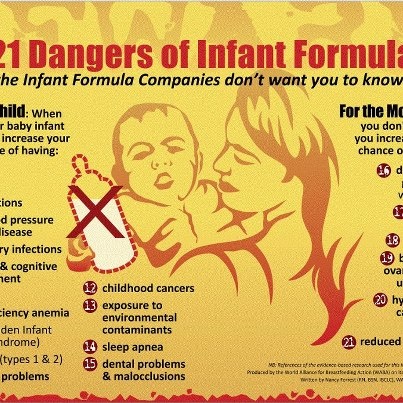
Some possible causes:
- Your baby is getting too much air from the bottle. Find out about choosing nipples and bottles for formula feeding.
- Your baby needs to be held in a different position during feedings. You could try paced bottle feeding, which is meant to mimic breastfeeding.
- Your baby isn't being burped often enough or for long enough. Find out how to burp your baby.
- Your baby might be constipated.
- Your baby is sensitive to an ingredient in the formula. Find out about formula allergies and sensitivities and choosing formula.
Your baby is still hungry after a formula feeding
At the end of a feeding, your baby might root around for the bottle, push their hands into their face or mouth, or even smack their lips to indicate they're still hungry. Paying attention to how often your baby eats and how they behave after feedings can help you determine if these are hunger cues, or signs of acid reflux or another need causing them to seek out comfort feeding.
- Your baby might not be eating enough. Find out how much formula your baby needs.
- Some babies have a strong urge to suck that can seem like hunger but may be for comfort. You could try giving your baby a pacifier to see if that helps soothe them.
Your baby is fussy or cries during or after feeding
It's normal to expect feeding to be the solution when your baby cries, so it can be confusing and frustrating if they become fussy during or after a feeding. Some possible causes:
- Your baby might be eating too much or not enough. Find out how much formula your baby needs.
- The bottle nipple is too big for your baby's mouth or the flow of formula is too slow or too fast. Find out how to choose the best bottle nipple for your baby.
- Your baby has painful gastroesophageal reflux.
- Your baby is gassy.
If your baby has reflux, their doctor may recommend trying a different kind of formula.
Find out more about how to cope with colic as well as other causes of colicky baby behavior, including excessive gas and constipation.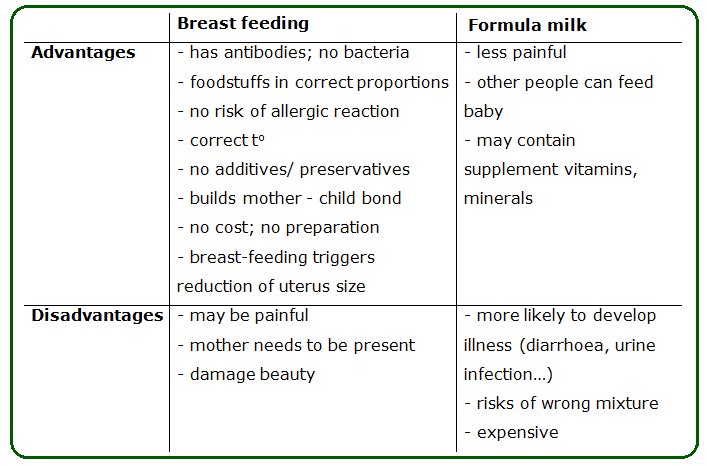
Your baby isn't gaining weight after 2 weeks
Healthy newborns lose between 5 and 10 percent of their body weight in the first week of their life and regain it by the time they're about 2 weeks old. After 2 weeks, babies keep gaining about an ounce each day during their first three months. If your baby isn't gaining weight after 2 weeks, here are some possible causes:
- Your baby isn't eating enough because of sleepiness, a weak sucking reflex, or feeding on a schedule (instead of on demand). Find out how much formula your baby needs.
- The formula you're using isn't prepared properly. Find out about using formula safely.
Talk to the doctor if your baby isn't wetting their diaper at least every 6 to 8 hours. This is a sign that they're not getting enough to eat.
Also let your doctor know if your baby has diarrhea for more than a day. Profuse diarrhea can be a sign that a baby isn't absorbing nutrients.
Find out more about why a baby may be diagnosed with failure to gain weight.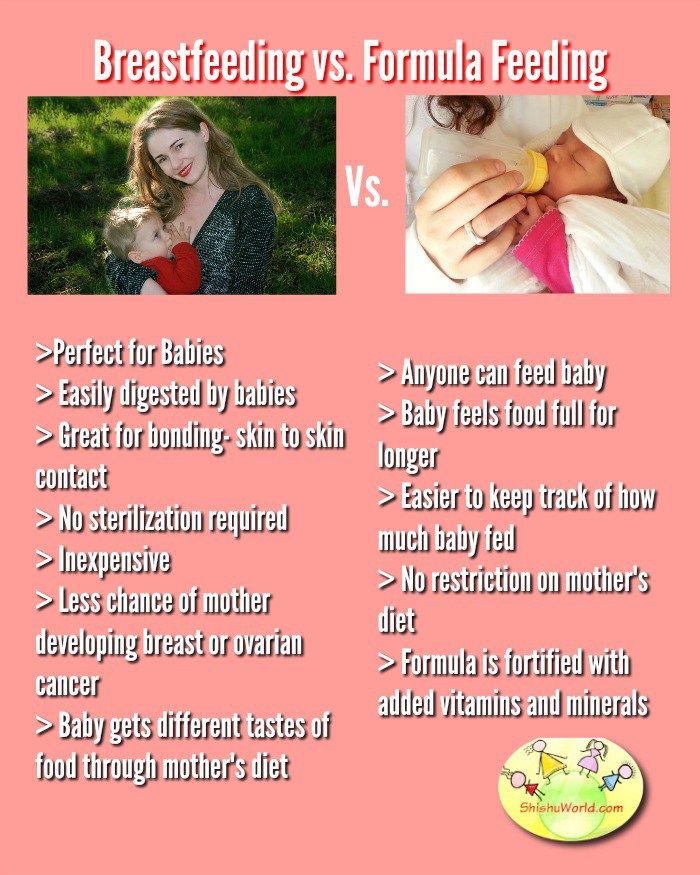
Your baby has rashes, hives, or eczema
While many newborns get mild acne or dry skin, developing an itchy rash, hives, or oozing bumps on the skin isn't typical. Rashes that keep coming back could be eczema, which occurs in 20 percent of infants. A possible cause:
- Your baby is allergic to an ingredient in the formula. Find out about formula allergies and sensitivities and choosing formula.
Contact with something else, like a skin care product, clothing item, or detergent, for example, could also irritate your baby's skin and cause issues.
Find out about eczema, hives, and other rashes and skin conditions.
Your baby is gagging or gulping formula
Depending on the age of your baby, bottle feeding takes anywhere between 15 and 40 minutes. Gulping might speed up the feeding, but it can also make your baby uncomfortable or cause them to overeat or gag. Some possible causes:
- The formula is flowing too fast. Find out about choosing nipples and bottles for formula feeding.
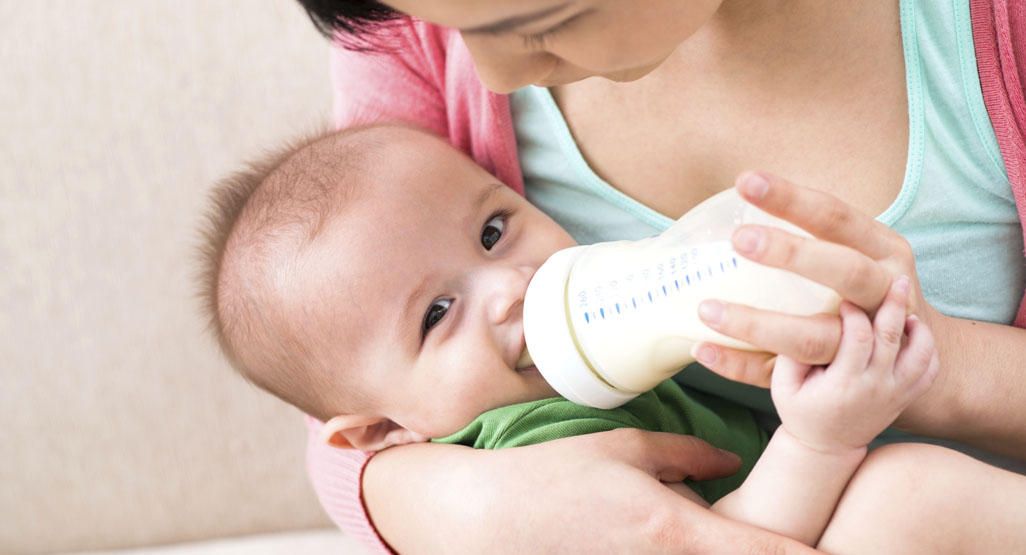
- Your baby is getting too hungry – maybe they're not drinking enough formula during each feeding, or they aren't being fed often enough. Find out how much formula your baby needs.
- Your baby needs to be held upright during feedings. You could try paced bottle feeding, which is meant to mimic breastfeeding.
Your baby has trouble sucking from the bottle
While it might seem like feeding would be second nature to a newborn, not all babies have an easy time learning to use a bottle. Some infants have trouble sucking from the bottle. Possible causes include:
- The bottle nipple is too big for your baby's mouth or the flow of formula is too slow. Find out how to choose the best bottle nipple for your baby.
- Your baby may have a tongue tie. You, and sometimes even your baby's doctor, may not be able to tell if your baby has a tongue tie just by looking. Let your pediatrician know if you have any concerns. They might diagnose a tongue tie or refer you to an ear, nose, and throat (ENT) physician for a further evaluation.

- Your baby has a cleft lip or palate. This is likely something your provider will diagnose during a prenatal ultrasound or at birth, but in some cases there may be a small cleft that won't be diagnosed until after the baby is born.
Your baby won't take a bottle
If your baby becomes angry or fussy, turning their head away when you offer the bottle, this could be a sign they're not interested in eating. Some possible causes:
- Your baby may not be hungry. Find out how much formula your baby needs and how often to feed them.
- You're introducing the bottle and your baby isn't used to it. (Breastfed babies often reject the bottle at first, and you may have to try to get them to take it multiple times over several days or longer.)
Your baby has a persistent diaper rash
Most babies get a diaper rash from time to time, but a persistent diaper rash that's impossible to heal or keeps coming back is typically a sign of a different problem.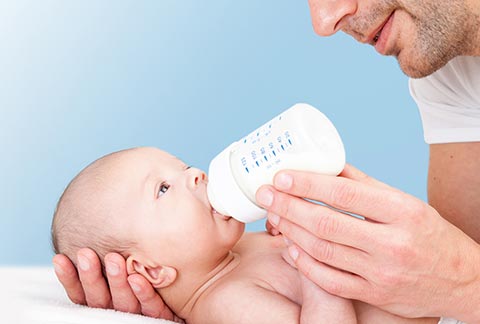 Possible causes:
Possible causes:
- Your baby is sensitive or allergic to an ingredient in the formula you're using. Find out about formula allergies and sensitivities and choosing formula.
- If your baby has a diaper rash that doesn't get better even after treatment with zinc oxide cream, it may be due to a yeast infection or a bacterial infection.
Your baby has unusual poops
When your baby is formula fed, you can expect the consistency of their poop to be similar to peanut butter. There's a wide range of normal colors for formula poop, with yellow, brown, and greenish-yellow all considered typical. If your baby is constipated or has unusually hard poop, it could be because:
- They need a different formula. Most babies will do well on a cow's milk-based formula, but other babies have softer stools on a more specialized formula, such as one that is partially hydrolyzed. Ask your baby's doctor about how to switch to a different formula.
Note: You may have heard that the iron in formula can cause constipation, but this isn't true.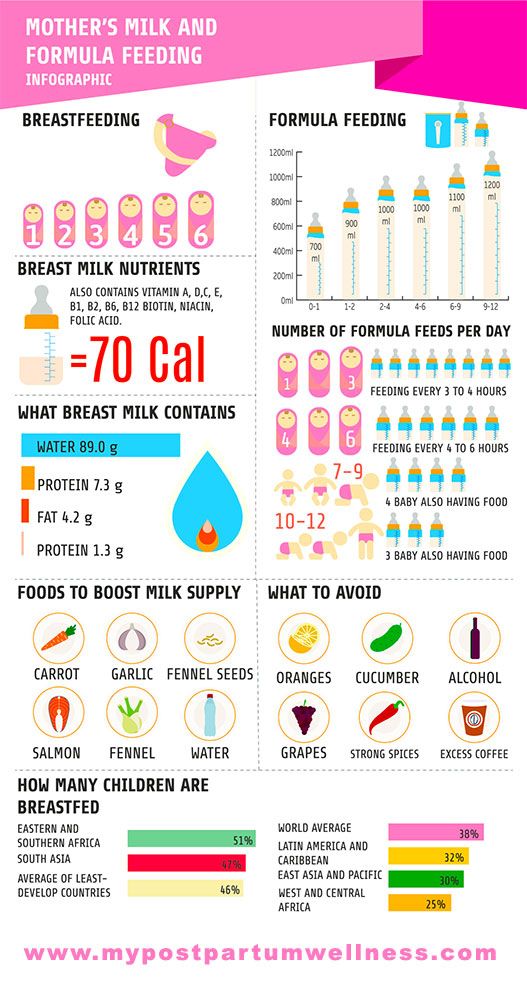
If your baby has diarrhea, it could be that:
- You're giving them formula that's been improperly stored or handled. Find out about using formula safely.
If your baby has mucus or blood in their poop, it could be that:
- Your baby is sensitive or allergic to an ingredient in the formula you're using. Find out about formula allergies and sensitivities and choosing formula.
Learn other reasons why you may see a little blood in your baby's diaper.
Bottle Feeding Problems - Why Your Baby Squirms, Appears Uncomfortable – Baby Care Advice
When your baby squirms, appears uncomfortable during a feed, fusses, cries or refuses a bottle, seemingly fights the bottle despite being hungry, it can be challenge to figure out the cause. The timing and type of behavior she exhibits provides vital clues.
Signs of bottle-feeding problemsDoes your baby display troubled behavior in relation to bottle-feeding, such as….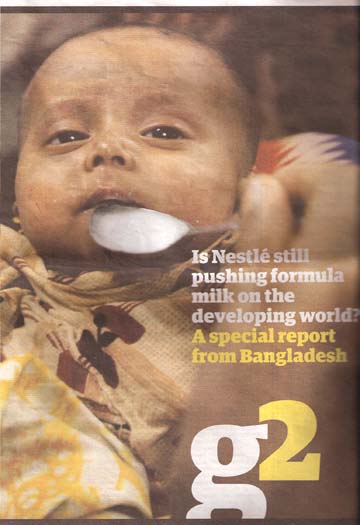
- Refuses a bottle
- Turning away from the bottle.
- Refusing to close her mouth around the nipple.
- Holding nipple in the mouth but not sucking.
- Taking only a small amount and then refusing more.
- Screaming when placed into a feeding position or at the sight of the bottle.
- Milk pouring out of baby's mouth.
- Feeding too quickly.
- Feeding too slowly.
- Falling asleep before the feed is completed.
- Coughing and spluttering when feeding.
- Not consuming as much milk as expected.
- Wanting more milk than expected.
- Throwing up large amounts of milk.
Then there may be steps you can take to remedy the situation and get your baby to calmly and happily take a bottle.
Behavioral reasons‘Behavioral’ means baby’s behavior is in response to the circumstances rather than a physical cause. Behavioral reasons are the most common of all reasons for infant feeding problems.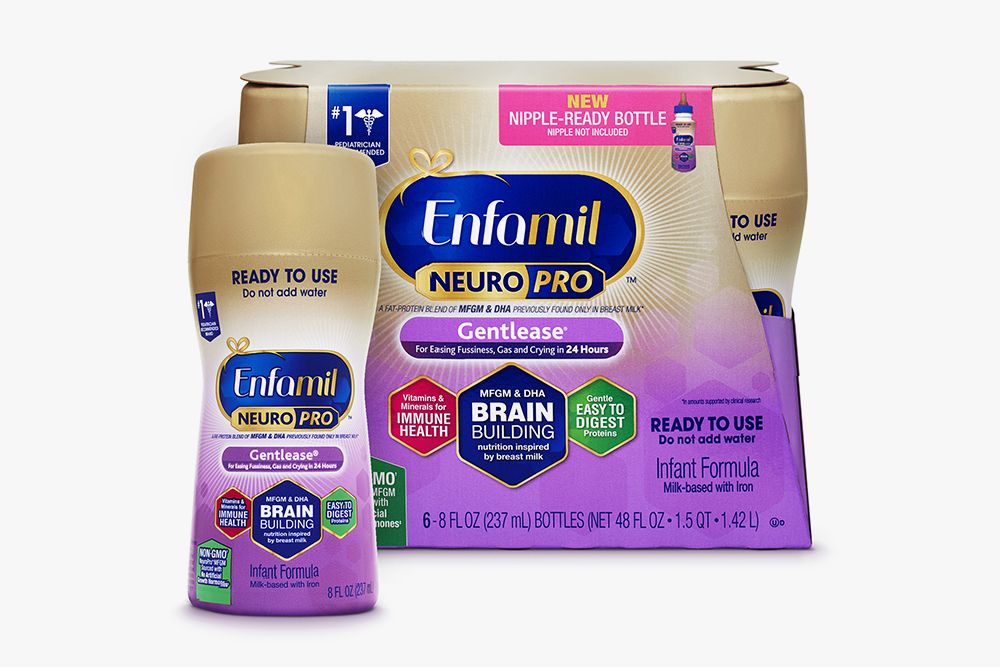 There are numerous behavioral reasons for a baby to experience feeding problems and/or display problematic feeding behavior. Common reasons include:
There are numerous behavioral reasons for a baby to experience feeding problems and/or display problematic feeding behavior. Common reasons include:
1. Misinterpreting baby's cues as signs of hunger Does baby at times refuse feeds?Does she take only a little and not want more?
Babies are in an oral stage of develop. Sucking is the primary way babies soothe. They also learn by sucking and mouthing objects. Many babies have a strong desire to suck for reasons that extend beyond hunger, such as tiredness, boredom, discomfort and soothing. There may be times when you mistake your baby’s desire to suck for these reasons as hunger.
Newborn babies have an active sucking reflex. This means a newborn baby may accept a feed even when she’s not hungry, and she might guzzle down the bottle because she cannot choose to not suck when her sucking reflex is triggered. Once her sucking reflex has disappeared (usually by 3 months of age) she will willingly take only the amount she wants to take.
If you have mistakenly interpret her fussing or desire to such as hunger and offer her a feed, she might take a little and refuse the rest, or she refuse from the start. If you try to make her drink more than she wants, she will understandably get upset and fuss, cry and pull back from the bottle.
WHAT TO DO- See Hungry baby for more reasons why babies often appear
- See Infant reflexes
In around one third of consultations I have had with parents regarding an infant feeding problem, I found that parents were trying to make their baby drink more than he or she needed. In some cases, this was because of errors made their health professionals. They either failed to adjust calculations as baby matured or failed to consider baby as an individual.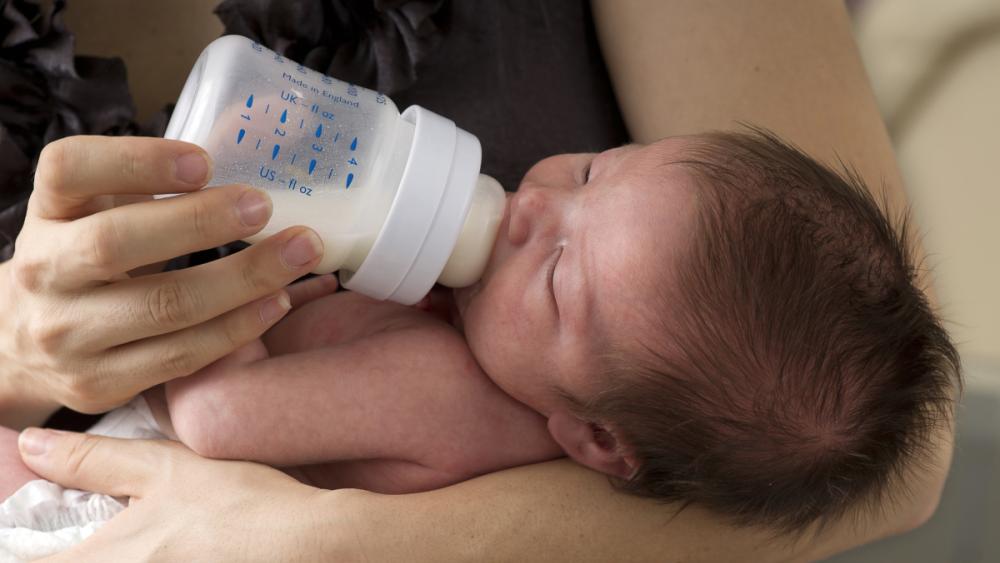 As a result, overestimated baby’s milk requirements.
As a result, overestimated baby’s milk requirements.
If you think your baby is not drinking enough milk (breast milk or infant formula) you’re naturally going to feel concerned. If your concern translates into trying to pressure her to drink more than she wants or needs (gently or otherwise), you’re going to upset her. So it is very important for your peace of mind and your baby’s enjoyment at feeding times that you have realistic expectations about how much she needs.
WHAT TO DO- See How much milk does baby need for standard estimations for age and weight, and reason why a baby might take more or less than recommended.
- Follow your baby's feeding cues. Don't try to make her take more when she indicates she has had enough.
Sleeping and feeding are closely related when it comes to the needs of babies. Both are equally important to a baby's health, growth and development and feelings of wellbeing. You are no doubt aware that if your baby does not feed well she might not sleep well. But are you aware that the opposite is equally true. If she’s not getting enough sleep this has the potential to negatively impact on her feeding.
Both are equally important to a baby's health, growth and development and feelings of wellbeing. You are no doubt aware that if your baby does not feed well she might not sleep well. But are you aware that the opposite is equally true. If she’s not getting enough sleep this has the potential to negatively impact on her feeding.
Physical fatigue can cause baby to fuss during feeds or falling asleep before the feed is completed. If you have a hungry/tired baby on your hands, tiredness will usually win out.
WHAT TO DO- Ensure baby gets enough sleep.
- Feed her before she becomes too tired.
- Aim to establish a flexible feeding and sleep routine to minimize the risk of feeding and sleep times clashing.
If your baby is often irritable and not sleeping enough, (see Overtired baby for signs and symptoms) you might find that resolving any underlying sleeping problem will cause feeding difficulties to spontaneously resolve once she receives adequate sleep.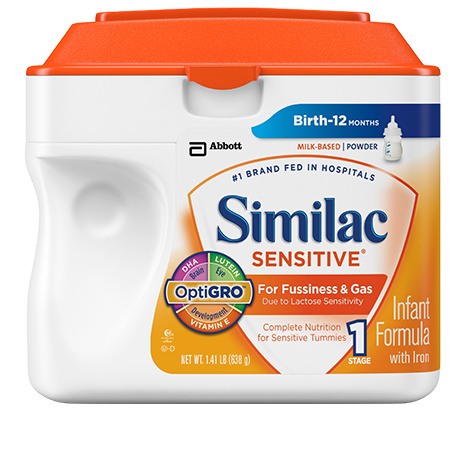
- See our sleep section.
- Download or order a paperback copy of my infant sleep book Your Sleepless Baby: The Rescue Guide. There you will find comprehensive information on the reasons and solutions to various infant sleeping problems.
Babies over the age of 4 months can easily become distracted while feeding. They are often much more interested in the activities going on around them than they are in feeding.
WHAT TO DOFeed your baby in a quiet environment away from noise and distractions of other children.
5. Feeding managementSome feeding problems can be related to what may appear like insignificant details but which can make feeding difficult or uncomfortable for a baby.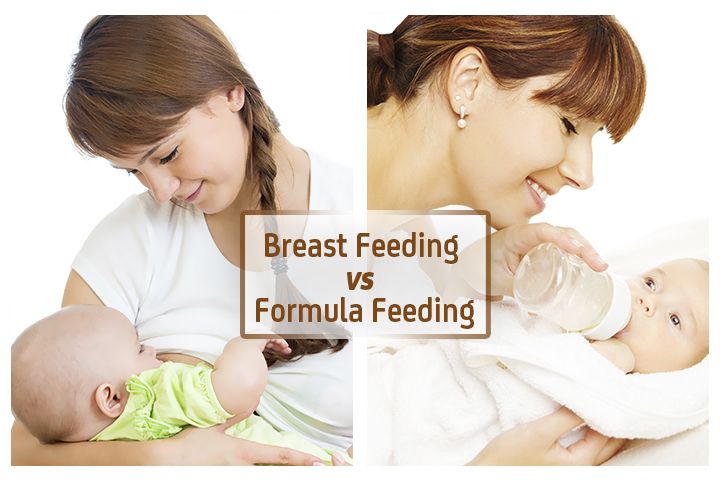 For example, how you hold your baby will affect her ability to feed from a bottle. If her head is too far forward or too far back or her neck is twisted this can make it difficult for her to suck or swallow.
For example, how you hold your baby will affect her ability to feed from a bottle. If her head is too far forward or too far back or her neck is twisted this can make it difficult for her to suck or swallow.
See How to bottle-fed a baby
6. Feeding aversionDoes your baby refuse to feed even when hungry?Does she scream at the sight of a bottle or when placed into a feeding position?Have you resorted to trying to feed her while asleep?A baby can develop an aversion to feeding when past feeding experiences have taught her that feeding is unpleasant, stressful or painful. Typically, baby is diagnosed with reflux and/or milk protein allergy or intolerance to explain her aversive feeding behavior. However, a behavioral feeding aversion (related to feeding management rather than a physical cause) is a far more common cause of infant feeding aversion.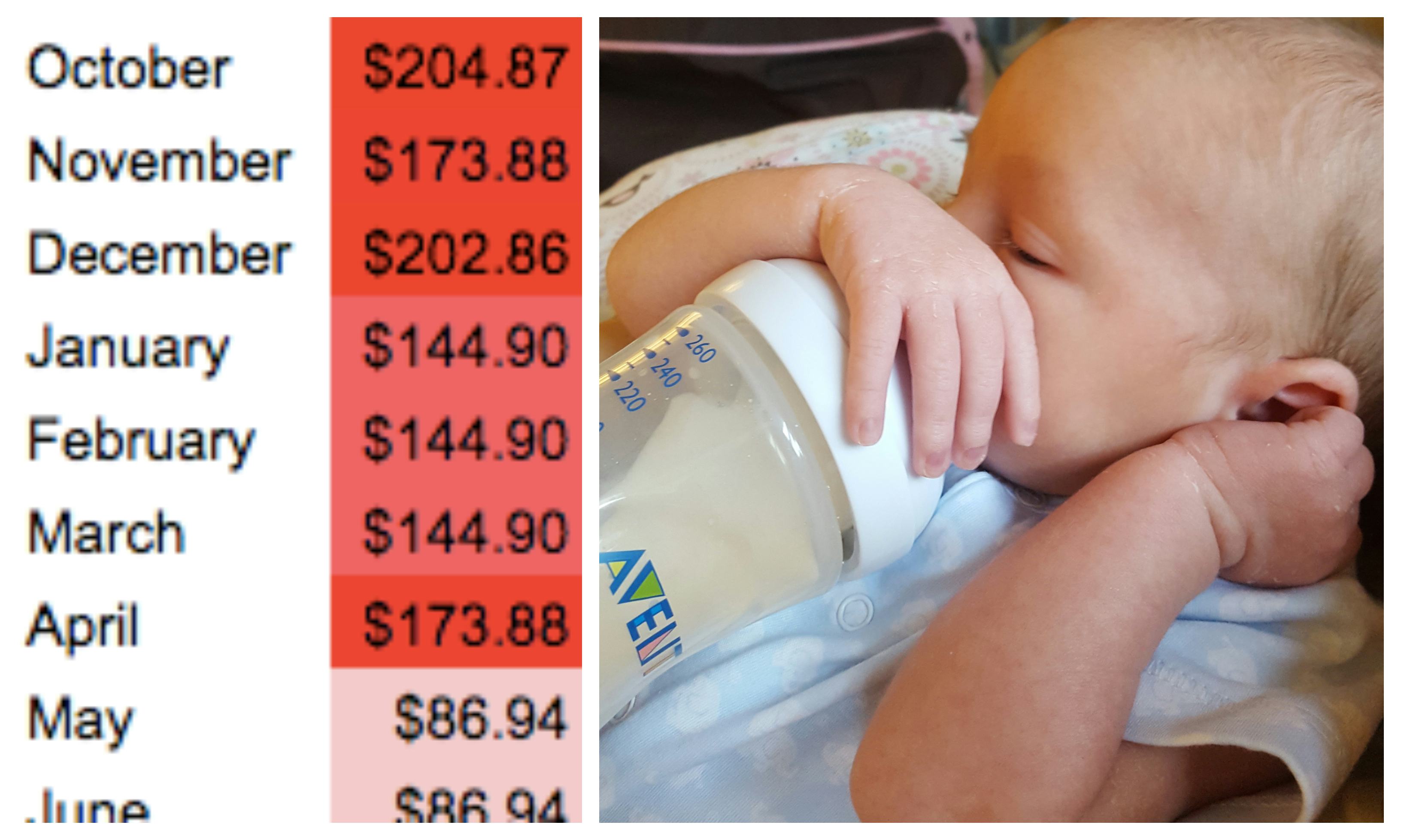
A feeding aversion is the most complex of all infant feeding problems. An effective solution relies heavily on accurate identification of the cause.
WHAT TO DOSee Feeding aversion for more information. Or purchase or download a copy of 'Your Baby's Bottle-Feeding Aversion: Reasons and Solutions'.
7. Feeding equipmentDoes your baby gag, cough or splutter during feed?Does baby make clicking sounds while feeding?It could be the nipple is too long, too short, too fast or too slow.
The most important piece of feeding equipment is the nipple. The nipple needs to be the right size and speed for your baby's size, age and sucking ability. If the nipple is too long, too short, too fast or too slow for your baby, she may experience feeding difficulties and express her frustration by fuss or crying.
WHAT TO DO- See Feeding equipment for more information on choosing a feeding nipple.
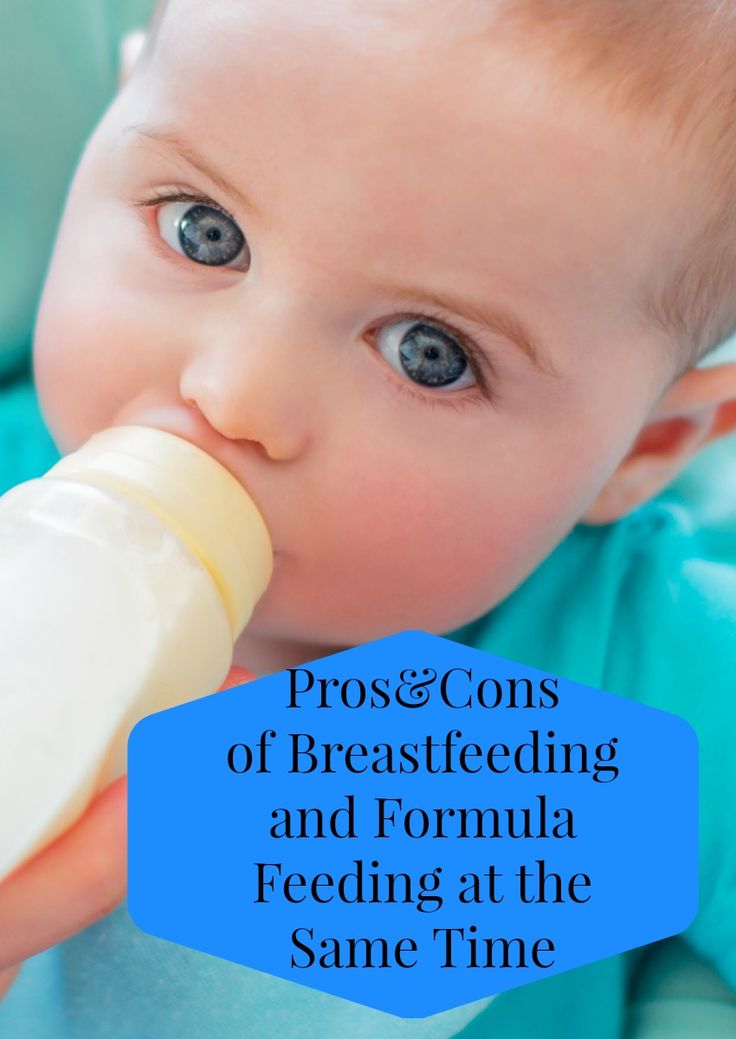
- Experiment with nipples of different lengths, shapes and speed.
It's possible her feeding difficulties could be due to the nipple ring being screwed on too tight.
In order to maintain a neutral balance in air pressure within the bottle air needs to be able to enter the bottle to replace the void left by the milk the baby is removing. If the bottle is vented, this is achieved via the venting system. However, in the case of a non-vented bottle, the only ways air can enter the bottle are between the nipple ring and the rim of the bottle and through the holes at the end of the nipple. While sucking, a baby will maintain a seal over the holes at the end of the nipple with her tongue and prevent air entry in this way.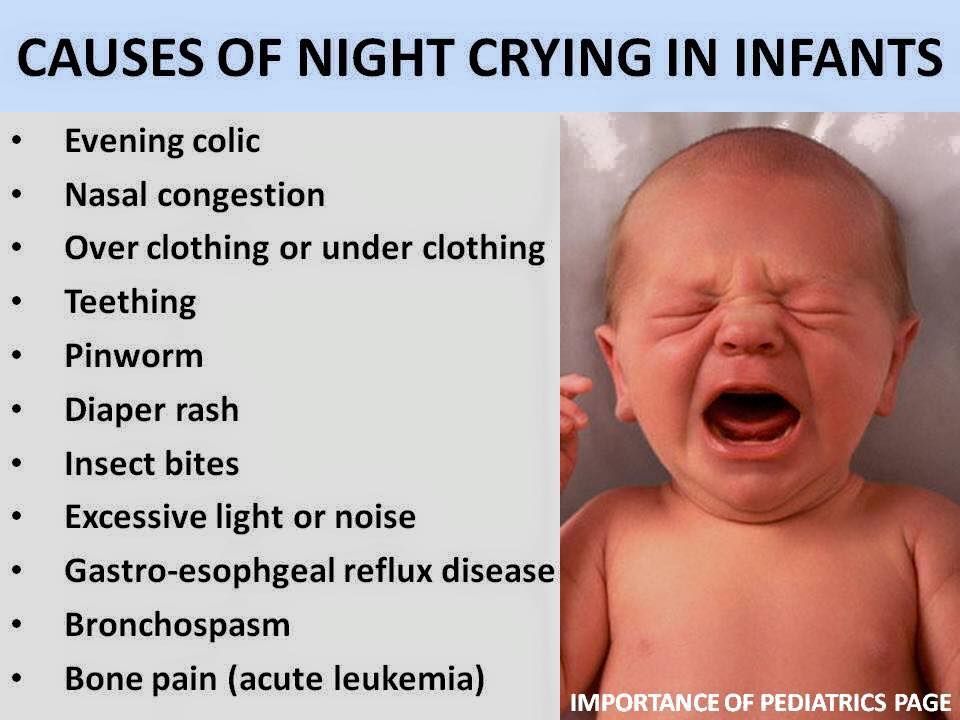 If the nipple ring is screwed down tightly this also prevents air entry.
If the nipple ring is screwed down tightly this also prevents air entry.
If air is prevented from entering the bottle, this causes a negative pressure to build in the bottle. As the pressure builds, baby need to work harder and harder to extract further milk, until such time and the air pressure is returned to normal. The effort required to suck against the negative pressure can cause a newborn baby to tire and fall asleep before completing the feed. An older baby may simply give up or express her frustration.
WHAT TO DOThe nipple collapsing (not all will) or stopping to burp baby allows air to enter through the holes and neutralize the pressure. But you don’t want to wait for this to resolve the problem. By then baby is already tiring or getting frustrated. See ‘Collapsing nipple’ for ways to manage this problem.
9. Feeding patternsIs your baby often take only small amounts, refuse more, but then wants to feed again an hour or two later?Some babies develop a grazing or snacking feeding pattern where they will only drink small amounts of formula at a time and then want to be feed frequently, possibly every hour or two.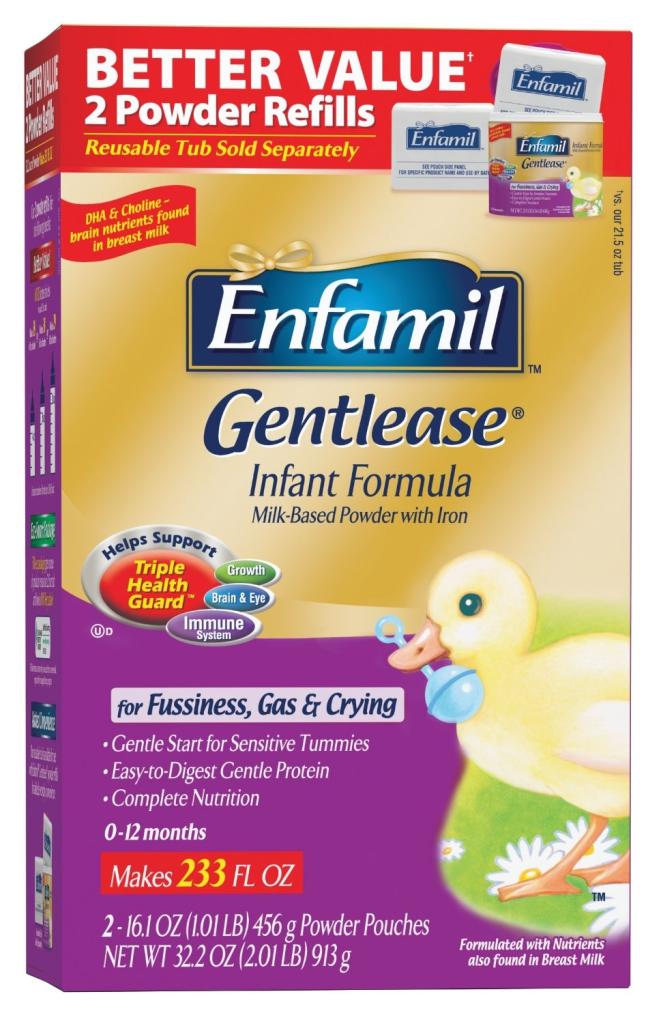 Although this will not cause any problems for a baby, provided she drinks enough formula in total over a 24 hour period, it can become very tiring for parents to keep up with her constant demands for feeding.
Although this will not cause any problems for a baby, provided she drinks enough formula in total over a 24 hour period, it can become very tiring for parents to keep up with her constant demands for feeding.
- Try to encourage your baby to take as much milk as possible within 45 minutes. But don't try to make her feed if she doesn't want to. Stop sooner if she does not want to continue.
- Ensure baby gets plenty of sleep.
- Avoid allowing baby to fall asleep while feeding.
- Support your baby to extend the time between feeds, by offering a little water, a pacifier, a nap, playing with her, or taking her for a walk. Aim to encourage her to wait at least 3 hours from time you started her previous feed, but only if it's reasonable to do so without distressing her. If necessary extend the time between feeds gradually. As your baby gets used to going longer periods between feeds she will gradually take larger amounts at each feed.
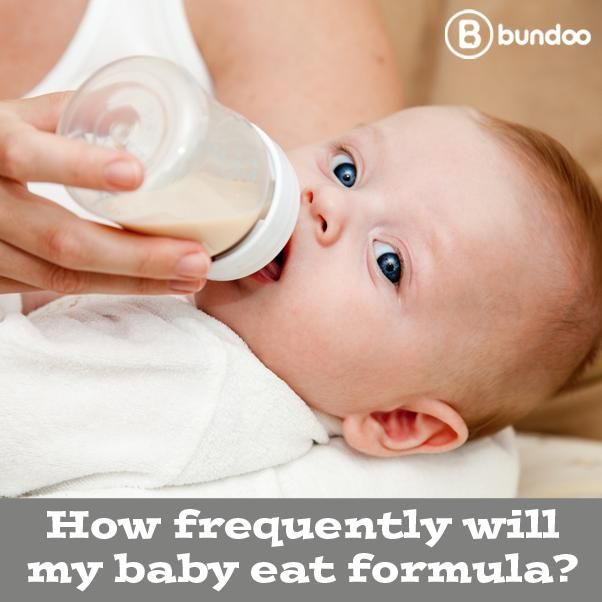
Unless your baby was born prematurely or is very small for her age, developmentally she no longer requires feeding during the night beyond the age 6 months. If nighttime feeding continues past this age its not going to harm her but it could have a negative effect on her appetite and feeding patterns during the day.
Your baby only needs a certain number of calories in her day (24 hours) to provide for her growth and energy needs. If after the age of 6 months she continues to receive calories from nighttime feeds this will dampen her appetite during the day and she will not need to drink as much formula during daytime feeds. You might find she is content to go for long periods of time between feeds (which is usually what would happen at night). She might fuss or refuse some of her daytime bottles when they are offered simply because she's not hungry at the time.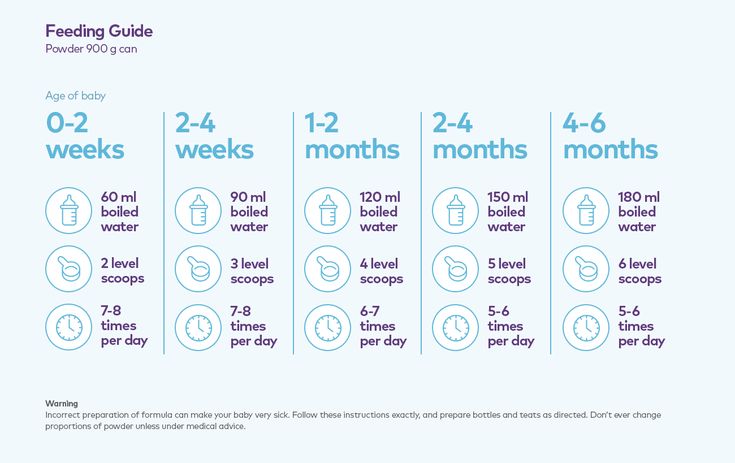 Or she might graze during the day.
Or she might graze during the day.
Nighttime feeding will cause your baby no harm, so if you're happy to continue feeding her during the night there's no reason to change a thing. However, it is important that you don't expect her to consume as much milk during the day as she may have otherwise taken if she did not feed at night.
Many babies will give up night time feedings on their own accord, but others will continue to wake and demand feeds overnight for months and possibly years while parents continue to provide feeds at night. Usually the reason babies continues to demand night feeds beyond the age of 6 months is because they have learned to rely on feeding as a way to fall asleep, or because their internal body clock gets turned around - where the baby has decreased appetite during the day because of the continued night feeds and as a consequence of small feeds during the day the baby wakes hungry during the night. Body clock problems can easily become a cyclical pattern that will continue over the long term unless parents take steps to change the situation.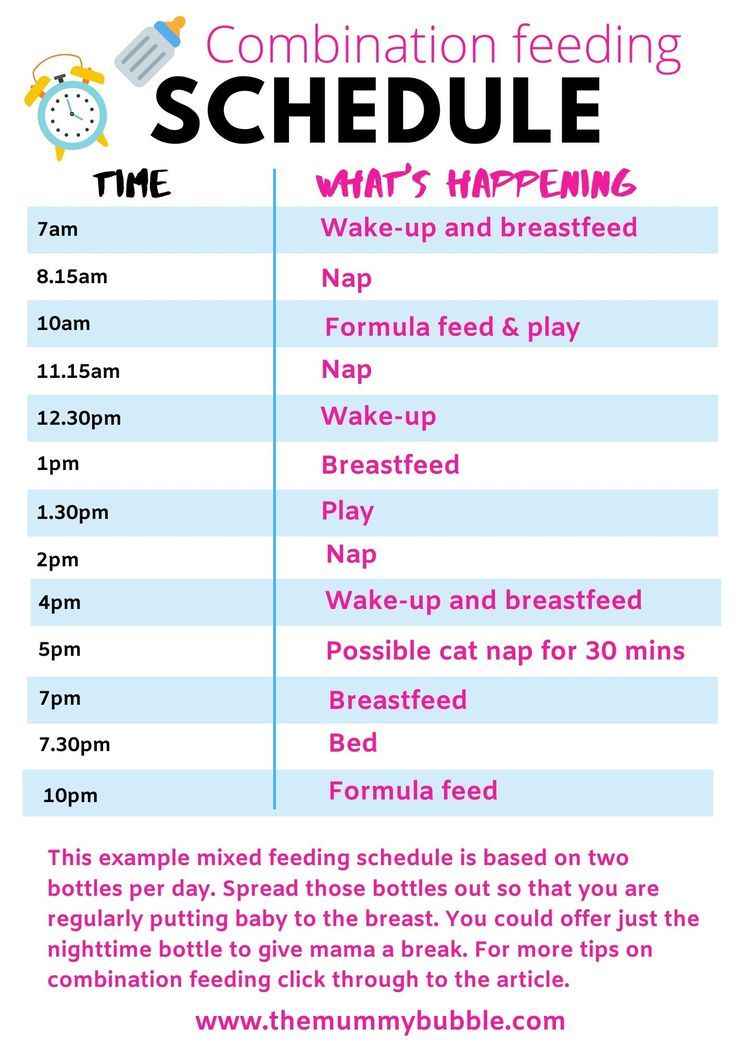 Healthy, thriving babies who continue to demand feedings at night beyond the age of 6 months often require guidance and support from parents to cease feeding at night and turn their body clock around to a normal day-night feeding pattern.
Healthy, thriving babies who continue to demand feedings at night beyond the age of 6 months often require guidance and support from parents to cease feeding at night and turn their body clock around to a normal day-night feeding pattern.
Aim to cease overnight feeds after 6 months of age. However, before attempting to do this it's important to address any feeding to sleep issues your baby might have. She would need to learn to fall asleep in a different way before you will be able to successfully encourage her to cease night feeds.
11. Starting solids earlyHave you started giving your baby solids before the age of 4 months?Have you been advised to start solids early?6 months is the recommended age for starting solid foods. Although a small number of babies may benefit from solids prior to this age, it's generally not recommended to start a baby on solid foods before the age of 4 months.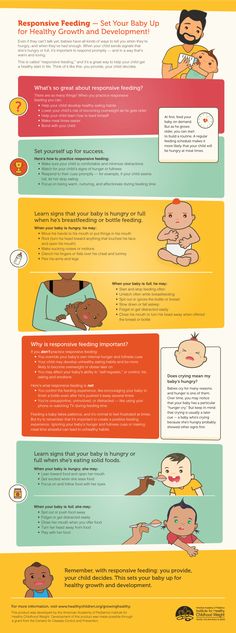 An early start on solids has the potential to cause bottle feeding problems because solid foods may decrease the baby's appetite for milk (breast milk or formula).
An early start on solids has the potential to cause bottle feeding problems because solid foods may decrease the baby's appetite for milk (breast milk or formula).
- If your baby is less than 6 months old, either cease or reduce the amount of solids you offer to see if this helps to improve the situation.
- See our article on starting solids.
If solids are offered prior to bottle feeds, either directly before or mid way between feeds, when it's time for your baby's bottle feed she might be feeling full from the solids, in which case she's probably not going to take much milk from her bottle.
WHAT TO DO- For babies 4 - 9 months (when milk is still the most important food) offer solids 15 - 20 minutes after bottle feeds.
- For babies 9 - 12 months (when solids are becoming increasingly more important to a baby's diet) offer solids shortly before or shortly after her bottle, whichever you find works best.
 Babies at this age are often down to 3 bottles per day plus 3 main meals and 1 or 2 snacks.
Babies at this age are often down to 3 bottles per day plus 3 main meals and 1 or 2 snacks.
In these early stages of learning to eat solids (4 - 7 months) solids are not needed to add value to a baby's nutritional intake, rather they are offered primarily to provide learning experiences. The baby is exposed to new food proteins that help prime her immune system. She gets to discover new tastes and textures and become accustomed to eating from a spoon. It is at this age that babies are most willing to accept new tastes. So variety rather than quantity is what solids are about.
Many babies, particularly very young babies, experience difficulty self-regulating their dietary intake. Some babies will continue to eat solid foods for as long their parents keep offering. Some babies will prefer eating solids compared to drinking formula. However, too much solids and not enough milk is not a balance diet for a baby. It may be necessary for parents to limit the amount of solids they offer in order to encourage their baby to have a greater appetite for milk feeds.
However, too much solids and not enough milk is not a balance diet for a baby. It may be necessary for parents to limit the amount of solids they offer in order to encourage their baby to have a greater appetite for milk feeds.
See our article on estimating how much milk your baby needs to make sure she's getting enough.
14. Weaning difficultiesDoes your breastfed baby refuse bottle-feeds?Does your baby have a breast preference?While some breastfed babies willing accept milk from a bottle many will not, at least not straight away.
Difficulty weaning from breast to bottle is rarely resolved by finding the 'right' feeding nipple. (All feeding nipples will feel equally foreign to a breastfed baby.) Nor does a solution lie in finding a formula with the 'right' taste. All formula will taste strange to a breastfed baby). The difficulty associated with weaning to a bottle most often lies in the fact that bottle-feeding requires a very different sucking action to breastfeeding.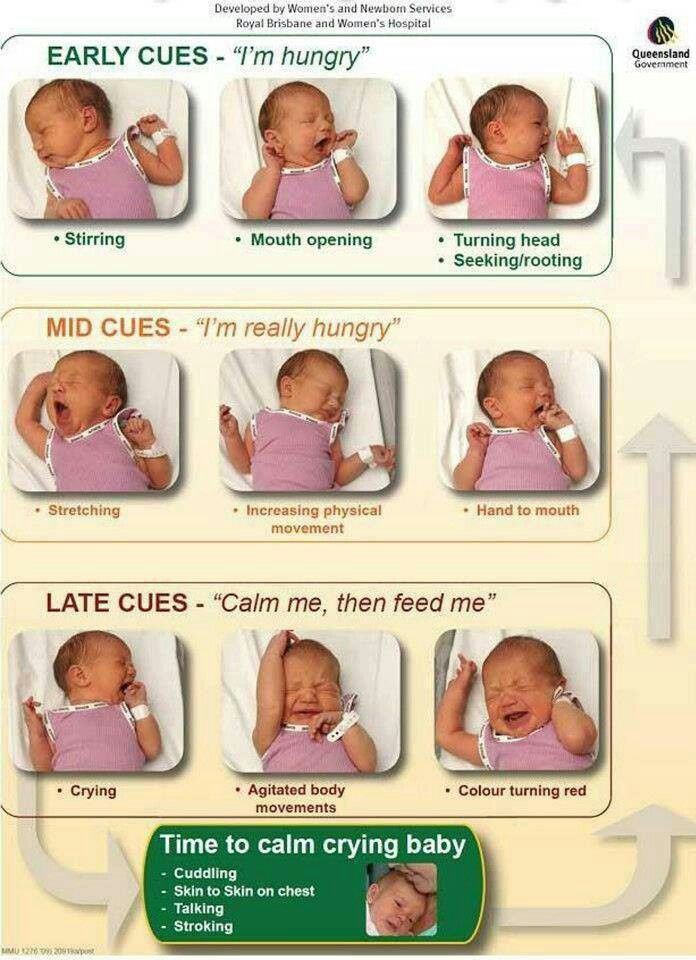 While breastfeeding the movement of your baby's tongue milks the breast, where as bottle-feeding requires a sucking action. A baby who has been exclusively breastfed beyond the age of 3 months will often refuse milk from a bottle because it "doesn't feel right" and she doesn't know how to suck from a bottle.
While breastfeeding the movement of your baby's tongue milks the breast, where as bottle-feeding requires a sucking action. A baby who has been exclusively breastfed beyond the age of 3 months will often refuse milk from a bottle because it "doesn't feel right" and she doesn't know how to suck from a bottle.
It takes time and practice before a breastfed baby learns how to suck on a bottle.
WHAT TO DO- Try offering expressed breast milk in a bottle initially. (Don't be too optimistic and put too much in to start with. It would be a shame to waste it).
- A soft flexible nipple often works better.
NOTE: Many breast fed babies will refuse to accept a bottle while they are still being breastfed at times. They will simply wait until a breastfeed is offered. For these babies it will be the case of breastfeeding or bottle-feeding, but not both.
How we can help your baby take a bottle- Your Baby's Bottle-feeding Aversion book
- Baby Care Advice consultation
- Rowena Bennett's Online Bottle-Feeding Aversion Program
In my book, ‘Your baby’s Bottle-feeding Aversion’, I have described physical and behavioral reasons for babies to develop an aversion to bottle-feeding.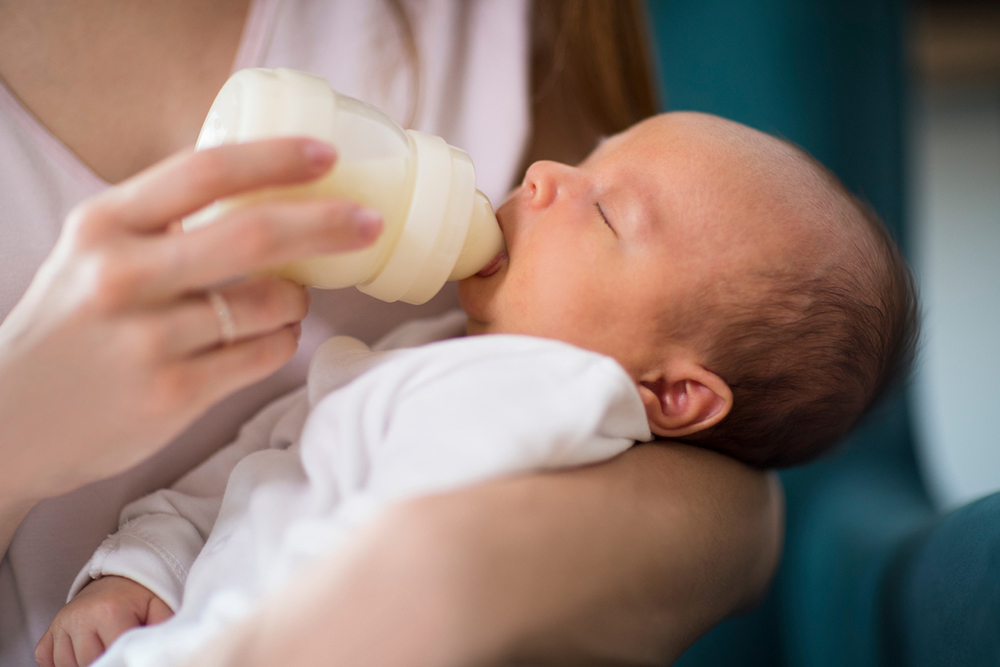 How to identify the cause and the solutions to match. Included are step-by-step instructions on how to regain your baby’s trust and resolve a feeding aversion caused or reinforced by repeated pressure to feed.
How to identify the cause and the solutions to match. Included are step-by-step instructions on how to regain your baby’s trust and resolve a feeding aversion caused or reinforced by repeated pressure to feed.
While the book was written for bottle-fed babies, many nursing mothers have found that applying the same strategies has also helped them to successfully resolve a breastfeeding aversion.
You might find that reading this book is all you need to do to understand the steps you need to take to resolve your baby’s feeding aversion and get him back to the point of enjoying eating until satisfied.
Baby Care Advice ConsultationsIf you would like an individualized assessment of all reasons for infant feeding problems, not just feeding aversion, we also provide a consultation service. Baby Care Advice consultants have extensive experience in pinpointing the cause of feeding aversion and other behavioral feeding problems such as those related to equipment and the parent’s feeding practices.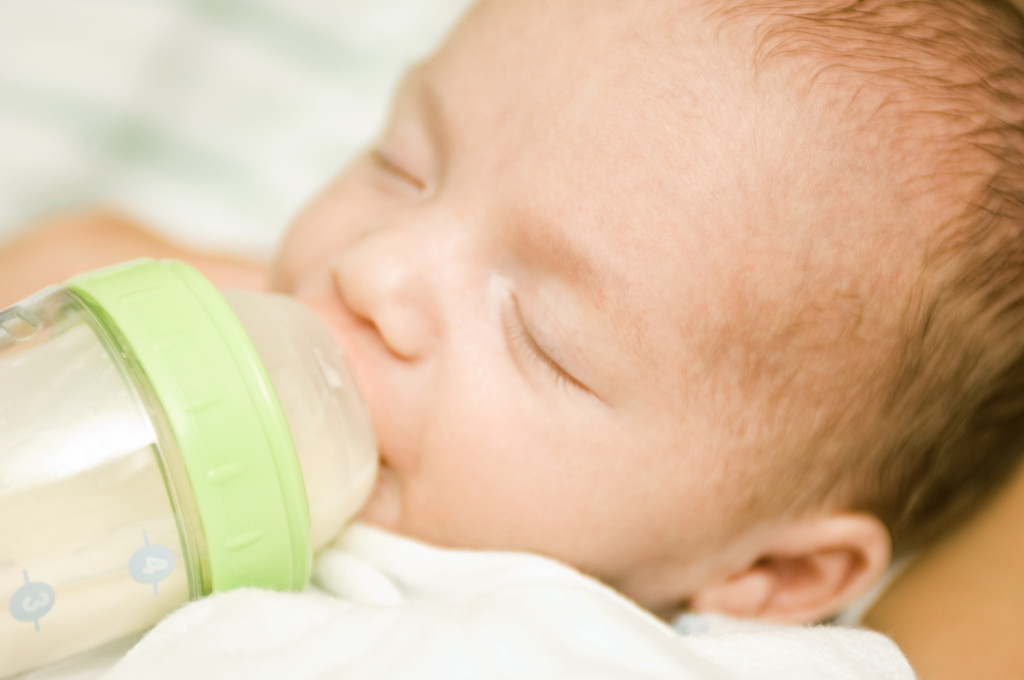 (For more on what’s included in a consultation).
(For more on what’s included in a consultation).
By Rowena Bennett, RN, RM, CHN, MHN, IBCLC.
Copyright www.babycareadvice.com 2021. All rights reserved. Permission from the author must be obtained to reproduce all or any part of this article.
Rowena's Online Bottle-Feeding Aversion ProgramSix time-saving modules to help your family enjoy feeding again with Rowena's step-by-step plan. Enjoy additional tools to manage anxiety, troubleshoot any issues, introduce new carers, how to manage illness/teething and much more.
- Module 1: Understanding feeding aversions
- Module 2: Identify the cause
- Module 3: Prepare for success
- Module 4: How to resolve your baby's bottle-feeding aversion
- Module 5: What to expect
- Module 6: Troubleshooting
- BONUS: Guided meditations
Why is my baby crying while feeding?
Hunger causes almost physical suffering to the baby: the level of glucose in the blood drops, the cells of the body do not have enough energy for growth and development, and all this is very unpleasant. That is why the baby is filled with loud, demanding crying with notes of disappointment and resentment. Well, how is it - they still haven't fed him - also to me, the parents are called! Previously, when babies were advised to feed strictly by the hour, hungry babies had time to cry almost before each feeding. There was even such a theory that crying is good for a baby - by doing so, he develops his lungs. In fact, his hungry cry does no more good for the respiratory system than your attempts to call a waiter in a crowded restaurant: you want to make an order, they don’t hear you, and sucks more and more in the stomach ... Feed the child as soon as possible, even if he is hungry before the allotted time.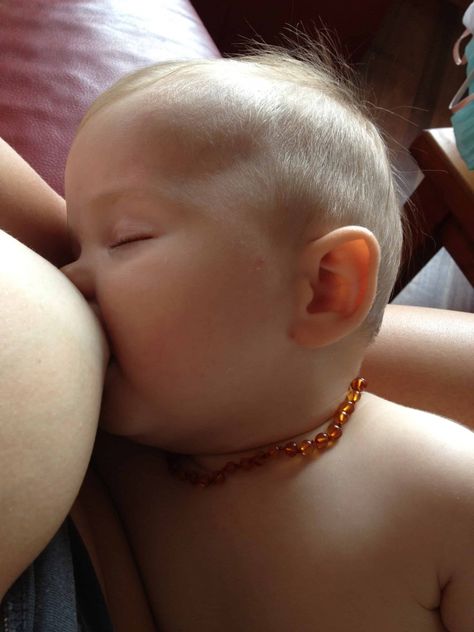
Just colic
All babies go through a period of colic in the tummy. They arise due to the immaturity of the digestive system, which adapts to milk, formula, supplementary food and complementary foods. Enzymes are still lacking, beneficial bacteria have not yet properly populated the intestines, so it cannot cope with the food load, overflowing with gases: they burst its walls and cause paroxysmal pain. At the same time, the baby screams quickly and piercingly and tenses up: he frowns, blushes, presses his legs to his tummy or twists them, clenches his fists. The screams follow each other for hours, exhausting both the child and the parents. Having warmed up on the handles, he calms down (warmth reduces pain), but as soon as the baby is put in the crib, the crying starts again.
Are you breastfeeding? Eliminate legumes, cabbage, soda, chocolate from the menu
Lay the baby on his tummy, apply a diaper or heating pad ironed (for warmth), massage around the navel in a clockwise direction.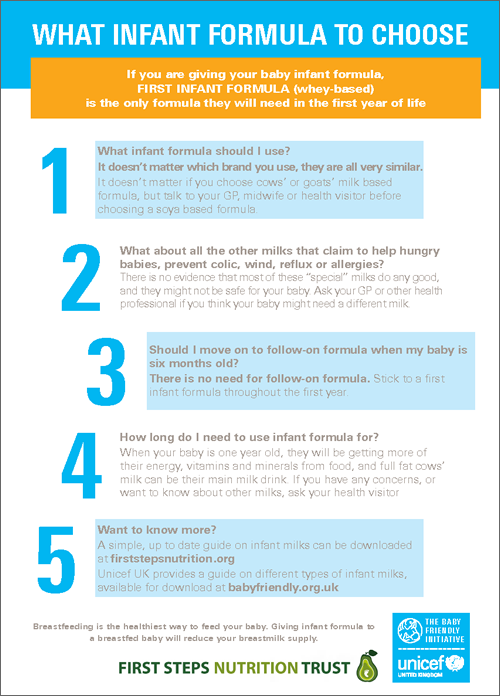
Give pharmacy infant tea with chamomile, fennel or dill (dill water) - it reduces the formation of gases.
Do not overfeed! And make sure that the baby does not swallow air during feeding: this happens if he does not suckle well to the chest or if the mixture does not completely fill the hole in the bottle during feeding. 50-70% of the gases accumulated in an infant are swallowed air!
Brain scream
The headache is very hard to bear. It seems that nature protected the baby from her, leaving the fontanelles uncovered. But if intracranial pressure rises quickly, and this system does not compensate for it, and also in the second half of life, when the fontanelles are almost closed, hypertension syndrome inevitably leads to headaches. She makes the baby cry in a special way: quietly, but continuously, monotonously, on one note. In such cases, you need to consult a neurologist.
Acute abdomen
Infants sometimes develop a very formidable condition - intestinal obstruction, in other words - volvulus (intussusception).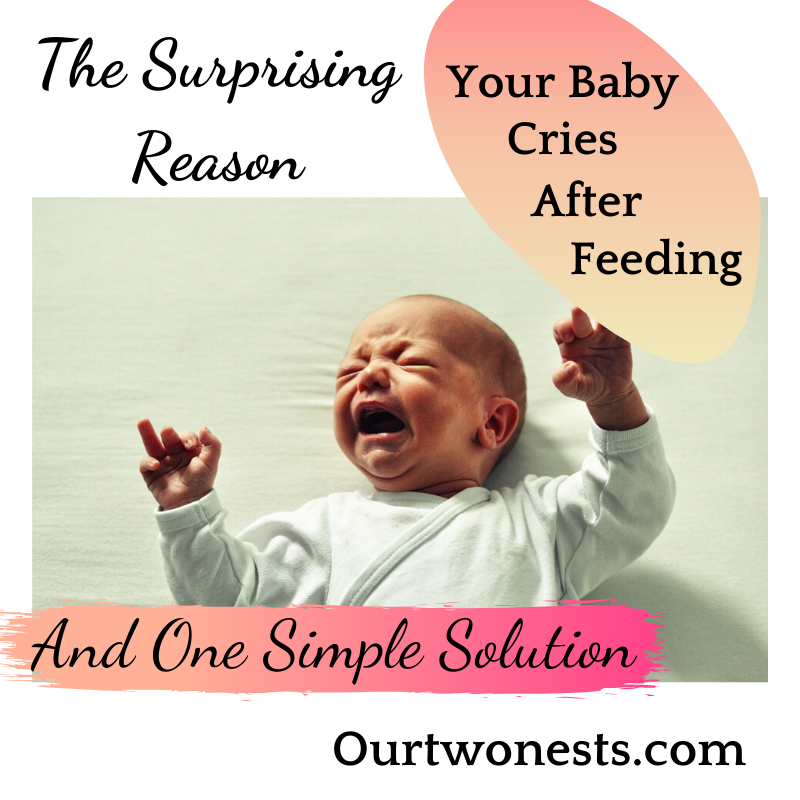 It arises due to the inconsistency of the waves of peristalsis that move food through the intestines. If a wave is too strong, intussusception may occur. At the same time, the crying of the baby will change - there will no longer be screams, as with colic, but waves of a loud, desperate cry. The pain is repeated in attacks: between them the child calms down and even falls asleep, but then starts screaming and rushing about again.
It arises due to the inconsistency of the waves of peristalsis that move food through the intestines. If a wave is too strong, intussusception may occur. At the same time, the crying of the baby will change - there will no longer be screams, as with colic, but waves of a loud, desperate cry. The pain is repeated in attacks: between them the child calms down and even falls asleep, but then starts screaming and rushing about again.
When introducing a new formula or product to an infant's diet, start with mini servings
Urgently call an ambulance! Even if it turns out that this is still not intestinal obstruction, but gases, the child’s tummy hurts very much: let the doctor help him by using a gas tube.
Food is like trouble
Does the baby take the breast or the bottle and then throws it away and starts screaming sharply and piercingly? Another option is a high-pitched cry immediately after feeding. Crying occurs due to a sharp pain in the abdomen, provoked by a lack of the lactase enzyme, which is involved in the breakdown of milk sugar - lactose.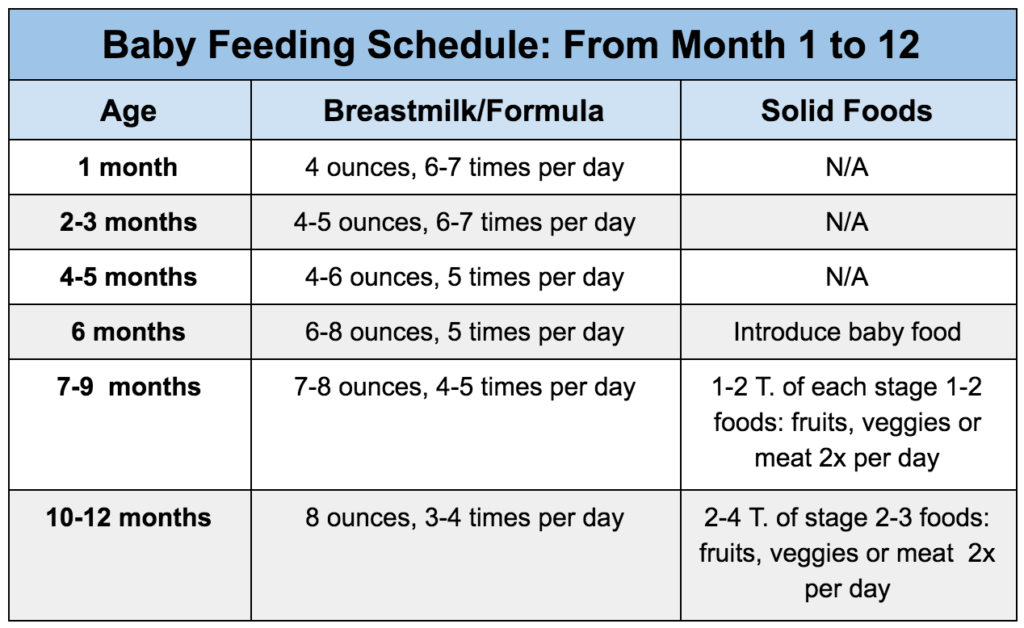 Upon receipt of the first portions of milk, the intestinal walls contract intensely, and it itself begins to ferment, causing flatulence with a sharp bloating of the abdomen. And it hurts a lot - hence the crying! In addition, the baby remains hungry: milk is not digested and absorbed.
Upon receipt of the first portions of milk, the intestinal walls contract intensely, and it itself begins to ferment, causing flatulence with a sharp bloating of the abdomen. And it hurts a lot - hence the crying! In addition, the baby remains hungry: milk is not digested and absorbed.
Your doctor will give your baby lactase supplements or recommend a formula containing lactase. In many children, the synthesis of this enzyme improves in the second half of life. Then the child can be fed dairy products without the risk of provoking colic and crying.
Teething?
Does the baby have wet eyes all the time: does he whine slowly, then sobs at the top of his voice? Look into his mouth: it looks like his first incisor is making his way below! At the time of the eruption of the next tooth, children's immunity weakens, and the child easily catches a cold. To alleviate the condition of the child, lubricate the gum in the place where the tooth pecks with a special tooth-cutting gel for babies (it has anesthetic properties).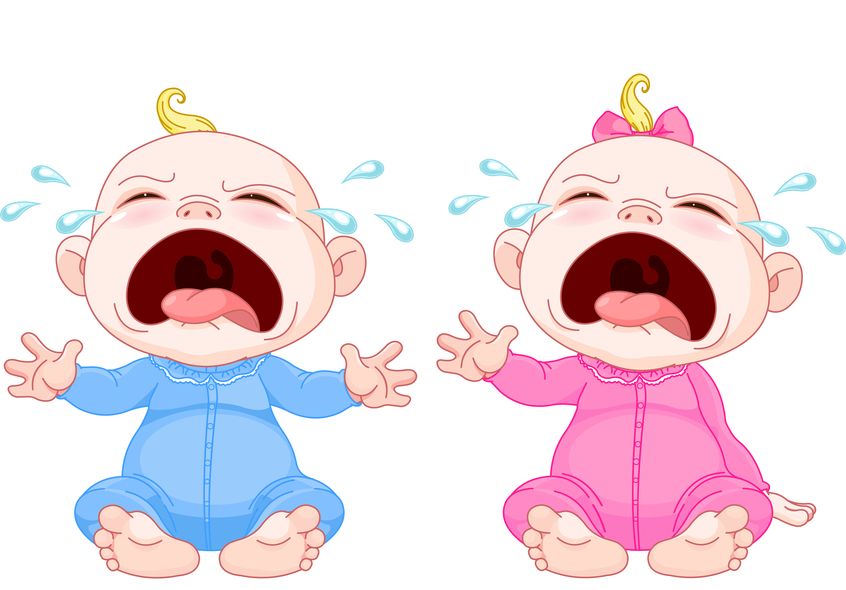 Let him gnaw on the gear-cutting rings with some water inside (having cooled first).
Let him gnaw on the gear-cutting rings with some water inside (having cooled first).
Otitis begins
The child literally takes a few sips and suddenly breaks into a piercing cry! Tries to suck again - and screams again. It hurts the kid to do this, because with every sip he shoots in the ear. Shooting pain can wake him up in the middle of sleep, and then it will also be an awakening with a piercing cry.
Press on the cartilage that covers the ear canal. If the baby wrinkled, let alone cried, he has otitis media. Hurry up and show your little doctor!
I want to get my hands on it!
The baby woke up and sobbed: no one was around! Well-fed and dry, he lies in his bed and whines in all voices - he wants to go to his mother. Being in her arms is not a whim, but the vital need of a child, and often the only way to calm down.
Photo: Mikolette/E+/Getty Images
How did this article make you feel?
Why the baby cries while breastfeeding
Yakovleva Ekaterina Andreevna
pediatrician, lactation consultant
Why does baby cry while breastfeeding? The answer may lie on the surface and depend on the situation.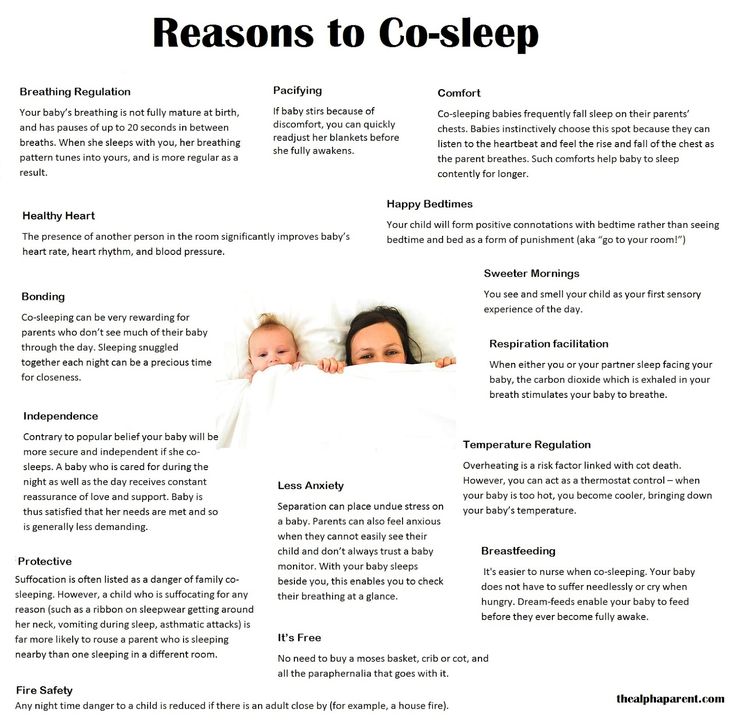 Some mothers themselves begin to put forward theories that are often incorrect - “I don’t have milk”, “I ate something wrong”, “The milk became tasteless and bitter”, “I shouldn’t have bought silicone pads” ... Consider the most frequent causes of crying at the breast and options for helping the baby together with Ekaterina Andreevna Yakovleva, pediatrician, breastfeeding consultant and mother of two babies. She knows about the tears of babies not only from professional, but also from maternal experience.
Some mothers themselves begin to put forward theories that are often incorrect - “I don’t have milk”, “I ate something wrong”, “The milk became tasteless and bitter”, “I shouldn’t have bought silicone pads” ... Consider the most frequent causes of crying at the breast and options for helping the baby together with Ekaterina Andreevna Yakovleva, pediatrician, breastfeeding consultant and mother of two babies. She knows about the tears of babies not only from professional, but also from maternal experience.
WHY A CHILD CRYS DURING FOOD
— Ekaterina Andreevna, is crying during feeding dangerous?
— Crying during feeding is a normal way for a baby to communicate with the outside world. So he calls his mother, shows that he wants to eat or something bothers him. The only thing that crying can affect is that the baby will come off the chest and take in air. This will lead to more abundant regurgitation, increased pain in the tummy.
Table. Newborn cries during feeding - 9 reasons0005
— Can a change in priorities of a child affect his behavior at the breast?
- Up to three months, babies have one priority - they need to either eat and sleep or change a wet diaper. After the children become more active, they are already interested in the world around them. Therefore, when feeding in public places, and also when the mother combines the process with talking on the phone or watching TV, the child can be distracted: suck - turn away - suck, ask for different breasts in turn, indulge.
After the children become more active, they are already interested in the world around them. Therefore, when feeding in public places, and also when the mother combines the process with talking on the phone or watching TV, the child can be distracted: suck - turn away - suck, ask for different breasts in turn, indulge.
After three or four months, the baby should not be on the breast very often, but mothers find it difficult to readjust and continue to breastfeed constantly to soothe him. But in fact, the child’s needs are already different - he wants to be vilified on the handles, paid attention to him, played with him, showed him toys.
- Let's discuss misattachment in more detail. What can a mother do wrong if the child does not eat well and cries?
- A very common symptom of improper attachment or refusal of the breast is trouble-free feeding only in sleep. When the child sleeps, he eats calmly, and when he is awake, he begins to twist at the chest, cry. Mom can get tired of this, and in order to calm and feed the baby, during the day she gives him a bottle. In such a situation, it makes sense to talk about breastfeeding and work to restore normal feeding.
Mom can get tired of this, and in order to calm and feed the baby, during the day she gives him a bottle. In such a situation, it makes sense to talk about breastfeeding and work to restore normal feeding.
Problems may arise from awkward or repetitive posture during feeding. By trial and error, the mother should choose the position that will be most convenient for her and the child. However, if a baby is fed only lying down from birth, at an older age he may refuse to eat in his arms, break out and cry.
A CHILD CRYING WHEN FEEDING - HOW TO HELP
- Ekaterina Andreevna, everything is very individual for small children. How to understand why a child eats and cries?
— If the baby cries during feeding, the mother should examine the possible reasons for such behavior step by step and:
- Eliminate the reasons related to the child's well-being, which she can deal with herself.
- Practice breastfeeding techniques.
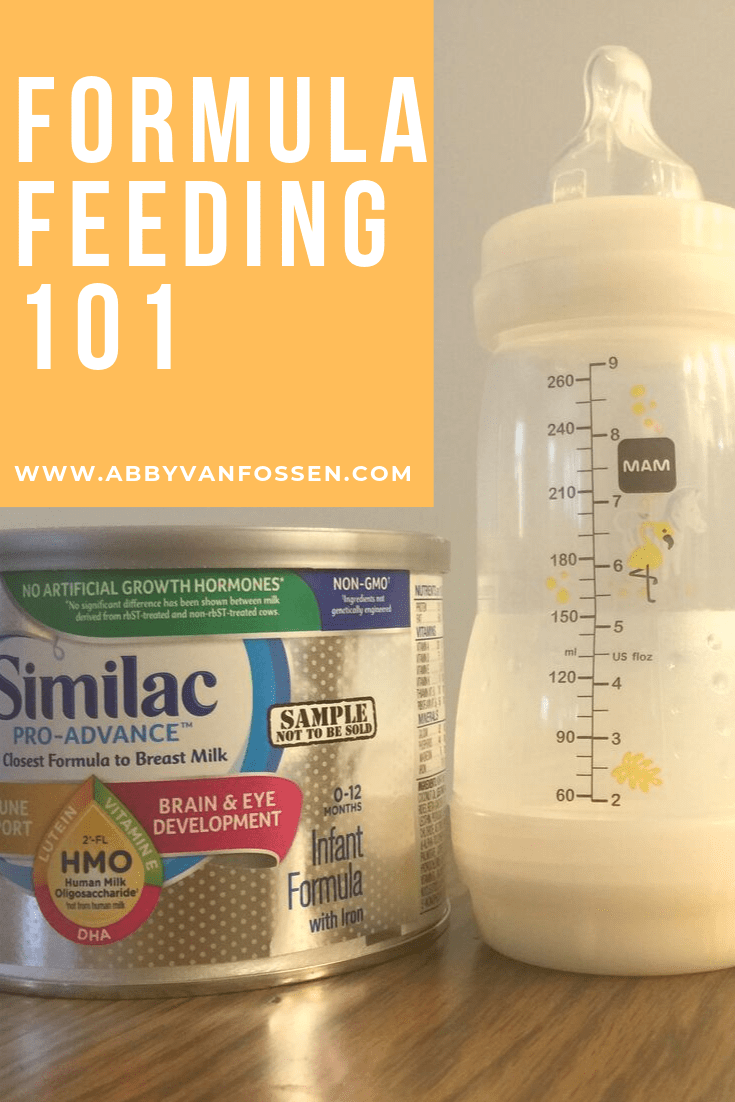
- Seek medical attention if all else fails - child continues to cry and has additional questionable symptoms.
A triad of symptoms that are always alarming
You should also consult a doctor if, during feeding, the child wriggles and cries from constant acute pain, cannot calm down, vomiting, blood and mucus in the stool, rashes in the mouth, stuffy nose are observed. Fever is an acute condition that is not associated with constant (for example, for a month) baby crying during feeding.
— What should I do if my baby refuses to breastfeed?
— The main thing for a mother is to remain calm and adequate. For a breastfed baby, one break can last an hour, and another five to six hours if the baby has slept long and well. Taking long breaks during the day, the child will still finish his daily allowance in order to develop normally. For example, if he has not eaten for six hours during the daytime, he will breastfeed more often at night.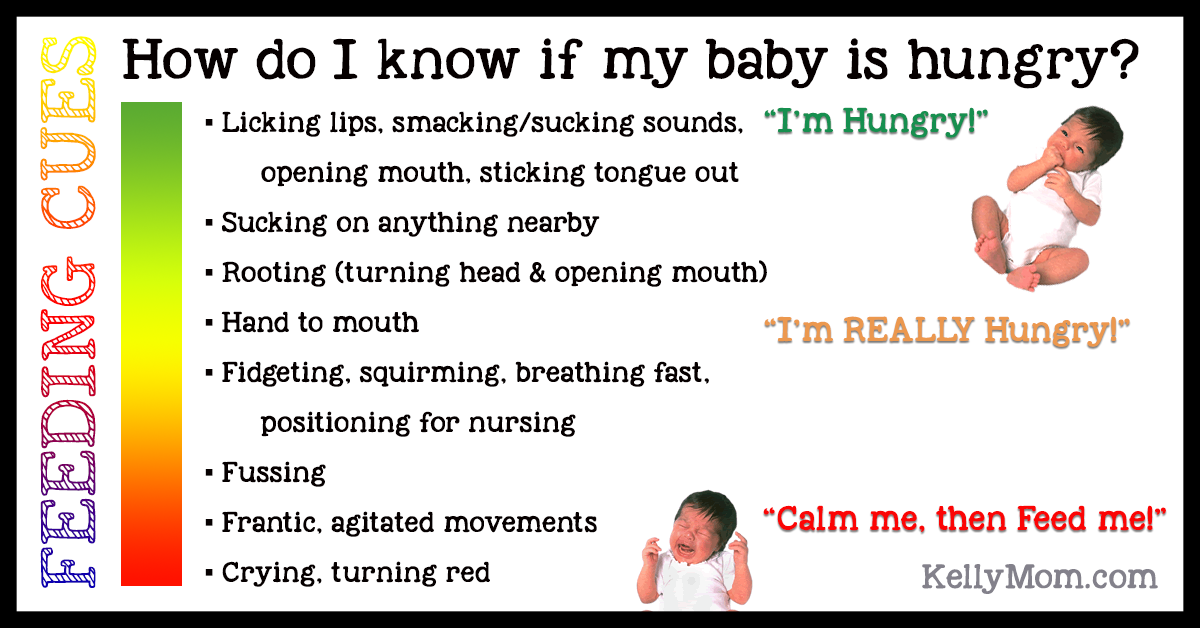 Therefore, in feeding children in the first half of life during the day, it is better not to take breaks for more than 3-3.5 hours. With the introduction of complementary foods, the intervals may be slightly longer.
Therefore, in feeding children in the first half of life during the day, it is better not to take breaks for more than 3-3.5 hours. With the introduction of complementary foods, the intervals may be slightly longer.
Night breaks are individual and depend only on the child - some children are born with a 6-8 hour interval, and some sleep at night for eight to twelve hours or eat every hour.
Read also
- About the reasons why a child refuses breast milk and whether it is necessary to switch to mixed or artificial feeding in such cases.
— Should I stop feeding if the baby is naughty?
- Depends on age. Mom should feel what exactly the child needs at this moment. If a newborn cries and refuses to breastfeed, you can calm him down, vilify him with a column, shake him, and then attach him to the breast again. If, having calmed down, the child turns away from the chest, then he has eaten.
An older child is distracted from the breast, becoming interested in something else. Do not force feed him. We must try to remove all irritants - feed in isolation in a separate room, not be distracted by gadgets, sounds, or give the child the opportunity to satisfy his interests, and then offer the breast again.
Do not force feed him. We must try to remove all irritants - feed in isolation in a separate room, not be distracted by gadgets, sounds, or give the child the opportunity to satisfy his interests, and then offer the breast again.
— What else can help calm the baby?
- Since most causes of crying are not related to medical problems, medication is not needed. It is necessary to relax, set up the baby, pump him, try to competently organize breastfeeding - apply correctly, do not give a dummy, nipple, supplement from a cup or syringe without a needle. As a rule, this is how most feeding problems go away.
— In what situations can a breast be replaced with a bottle?
— It is not worth replacing breastfeeding with formula feeding without acute vital signs. When a baby is not accepting the breast well, it is worth removing all bottles, continuing to supplement with “non-sucking” items, and contacting a breastfeeding specialist to try to establish attachment and breastfeeding.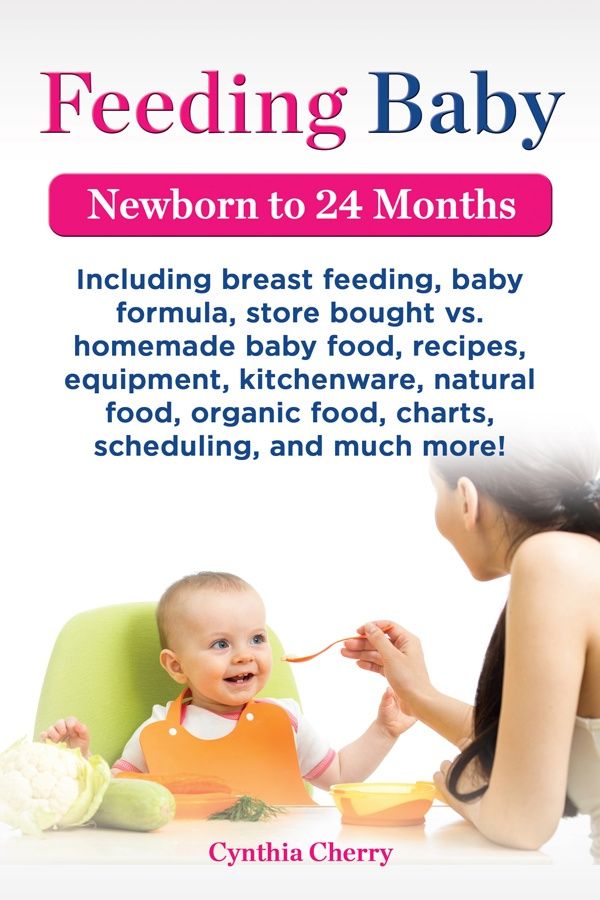 This is done by a lot of people.
This is done by a lot of people.
- Does changing the feeding regimen help to get rid of crying?
- Rather, these are unrelated things. It is not worth forcibly adjusting the feeding regimen, you need to listen to the child - in the first three months, the children constantly hang on their chest, after they begin to form a regimen and the intervals between meals increase. It is important to feel the needs of the child, because not only hunger, but also other things can disturb him, and if he constantly poke his chest, he will not be very pleased.
Table. Errors during breastfeeding
The baby cries during breastfeeding for many reasons. It can be improper attachment to the breast, "tangled nipples", inflammatory diseases of the oral cavity, runny nose, colic, teething, lactase deficiency, or a very nervous state of the mother. It is possible to understand what the problem is only by eliminating the organic and psychological causes of crying.